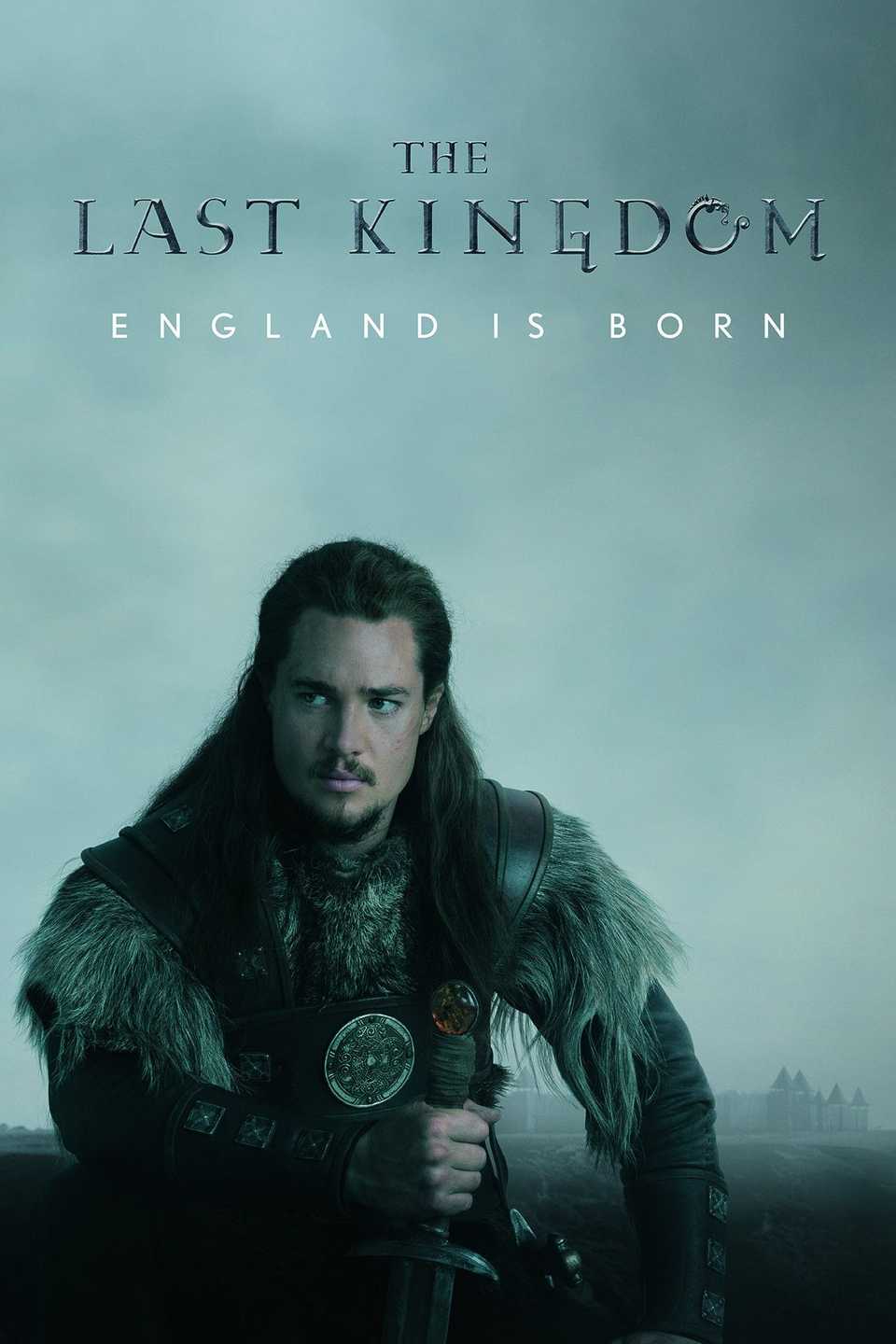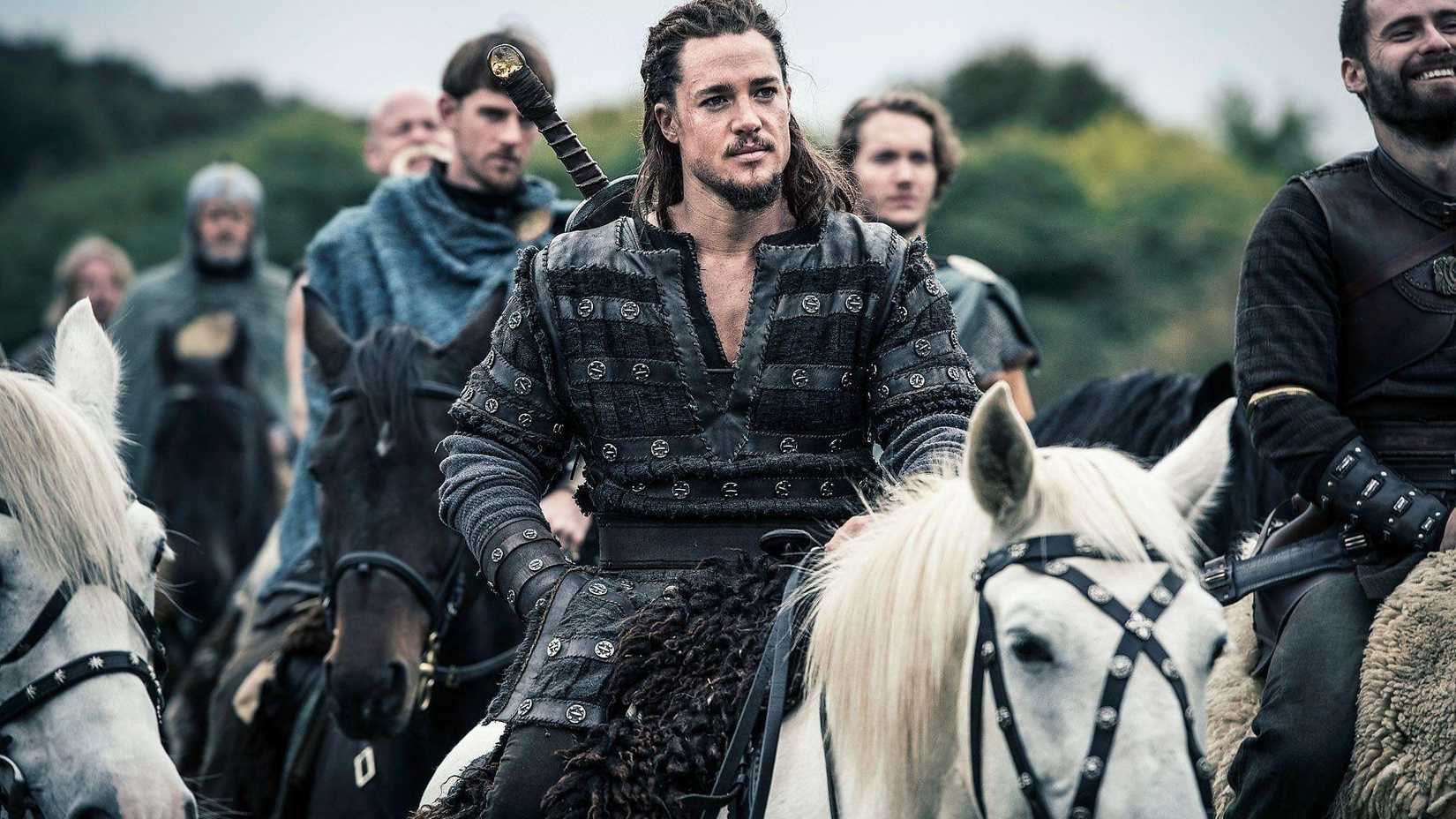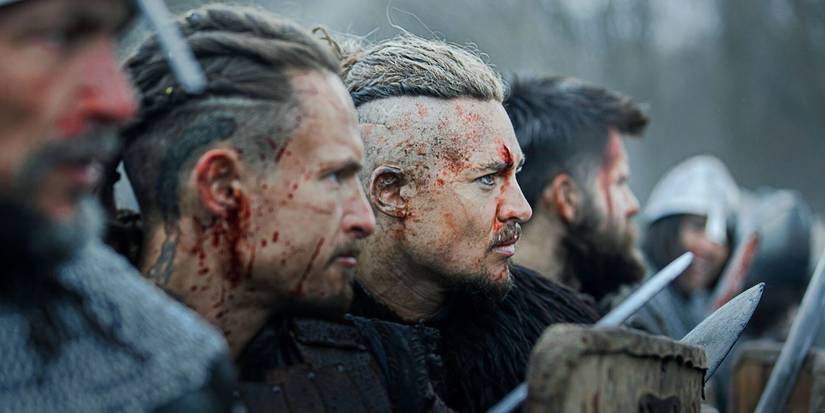When Game of Thrones premiered on HBO in 2011, it was unlike anything TV audiences had ever seen. Historical fiction, fantasy, horror, romance, family drama… they’d all been done before, but not all in one show and not so well. D.B. Weiss and David Benioff’s adaptation of George R.R. Martin’s series of novels provided gripping scenes of palace intrigue, as well as epic-scale action. Though not everyone thought they stuck the landing, fans stayed with Game of Thrones to the end, as the story, the cast of characters, and the map of locations continually expanded. That the show could be, at once, so sprawling and so personal made for a particularly rewarding viewing experience.
Not long after Game of Thrones had become a phenomenon, a British show called The Last Kingdom went into production. The Last Kingdom was also based on a book series (a completed set of 13 novels by Bernard Cornwell, called The Saxon Stories), and after its first season debuted in 2015 and drew comparisons to Game of Thrones, Netflix got involved for Season 2 and took over production completely for Season 3 onward. The Last Kingdom ultimately ran for five seasons, with each season covering two of Cornwell’s volumes, and concluded with the feature-length movie, Seven Kings Must Die. All 46 episodes and the film are streaming on Netflix, and Thrones fans who are itching for more scheming and swordplay might be pleasantly surprised by the similarities.
‘The Last Kingdom’ Is a Game of Thrones Between the Saxons and the Vikings
There are myriad parallels to be drawn between Game of Thrones and The Last Kingdom, the most obvious of which is that both series have to do with the never-ending battle to attain and keep power. Game of Thrones is loosely inspired by, among other things, the War of the Roses, which took place in 15th-century England between the Yorks and the Lancasters. The Last Kingdom (which doesn’t include fantasy elements such as dragons or White Walkers) is much more closely inspired by real history… specifically, the Viking invasions of Anglo-Saxon England that took place in the late 9th and early 10th centuries. In both cases, would-be kings and their warring factions make and break allegiances. Power frequently changes hands. And just as frequently, main characters unexpectedly die.
Like a combination of Jon Snow and Theon Greyjoy, the protagonist of The Last Kingdom — Uhtred of Bebbanburg (Alexander Dreymon) — is a man torn between two worlds. He’s the second son of a Saxon noble who died fighting the Great Heathen Army, but he was raised by his Norse captors thereafter and became accustomed to their gods, traditions, fighting style, and way of life. He has a complicated relationship with both the Saxons and the Danes, neither of whom fully trusts him, and he spends much of the show as a lone wolf of sorts. That’s because, more than anything, Uhtred wants to reclaim the home that was stolen from him in his youth.
To take back his birthright, he must fight and play politics, as he does with and alongside King Alfred the Great. Alfred, who is Christian and incredibly pious, believes it’s God’s will that he should unite the kingdoms of England — Wessex, Sussex, East Anglia, and Northumbria — under a single banner. Uhtred is a pagan who wants to return to Bebbanburg in Northumbria, where his usurping uncle Aelfric sits on the throne. He and Alfred are aligned in some ways and opposed in others, which means that any agreements between them are fragile.
Like Game of Thrones, The Last Kingdom has its fair share of strong female characters whose lives intersect with Uhtred’s. He was raised alongside Brida, another Saxon taken by the Danes who wholeheartedly embraced being a Viking. She’s Uhtred’s equal (and former lover), but they often find themselves on opposite sides of conflicts. Uhtred also has a close bond with King Alfred’s daughter, Aethelflaed, who is married to the Lord of Mercia, a semi-autonomous territory within Wessex, which was ruled by Alfred. These women, as well as his wife, Gisela, and daughter, Stiorra, have agency of their own. However, their presence in Uhtred’s story often represents a challenge to his personal and political principles.
‘The Last Kingdom’ Matches ‘Game of Thrones’ in Scope
It Has a More Satisfying Ending, Too
Just as it takes Daenerys almost the entire run of Game of Thrones to reach her ancestral seat, Uhtred takes the long road back to Bebbanburg. Along the way, he makes dozens, if not hundreds, of friends and enemies and becomes somewhat unwittingly involved in large-scale events that shaped the world we live in today. Immersing oneself in Uhtred’s universe is part of the experience, though it can sometimes feel challenging to retain all the details. Many of the English characters in The Last Kingdom even have names beginning with A that are nearly impossible to keep straight. Instead of Aegons, Aemons, and Aemonds, there’s Alfred, Aelfric, Aethelwold, Aethelred, Aethelflaed, Aethelhelm, Aelflaed, Aethelstan, Aelfwynn, and Aelfweard.
As the title of the concluding film suggests, there are seven potential heirs to thrones in The Last Kingdom, just as there are seven kingdoms within Martin’s fictional Westeros. The characters are regularly forced to choose between loyalty to family or friends and loyalty to country. Prophecy is often a driving force behind events. Faith — to old gods and to the new — is another dividing line. Both shows are richly detailed, and both feature standout battle episodes, the fight choreography and cinematography of which are on par with any theatrically released movie of their kind. However, what audiences might appreciate most about The Last Kingdom is its consistent quality and fitting finale.
On the whole, Game of Thrones is probably the better show, and certainly the more culturally relevant one, if for no other reason than people like dragons and zombies. However, because The Last Kingdom is more rooted in Cornwell’s writing, which is itself more rooted in history, and because The Saxon Stories are complete, Uhtred’s saga feels more grounded and as though it delivers on its promise. The way Season 5 wraps up would’ve been a perfectly satisfying ending to the series, but it leaves enough threads loose to justify the Netflix film.
Seven Kings Must Die, which hit Netflix in 2023, is primarily an adaptation of the 13th and final book, War Lord. If The Last Kingdom is about Uhtred’s journey and Alfred’s dream of a united England, then the TV show and the movie give viewers two distinct endings that work in harmony with each other, with plenty of Thrones-level backstabbing, romance, and action from start to finish. The Last Kingdom is streaming on Netflix.

- Release Date
-
2015 – 2021
- Network
-
BBC
- Showrunner
-
Stephen Butchard
- Directors
-
Alexander Dreymon
- Writers
-
Martha Hiller, Stephen Butchard



